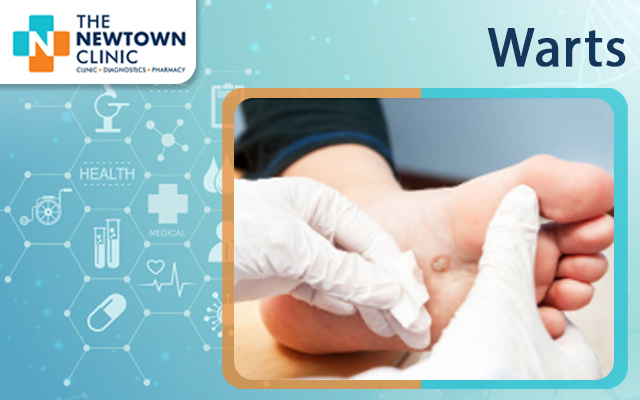A particular type of skin infection results in the formation of noncancerous (benign) rough bumps on the skin. These are known as warts, which form when the human papillomavirus (HPV) causes infection by entering a break or cut in the skin. Anyone can have warts, although the risk is more in children as they get more cuts on their body. The risk is also more in some people including the elderly people who have a weak immune system or autoimmune disease.
Types
Based on the affected body parts, the types of warts may vary.
- Hands: The most common types appear here and so these are known as common warts.
- Face: The face and the forehead are the areas where flat warts appear.
- Feet: On the soles of the feet, plantar warts appear.
- Genitals: The penis, vagina or rectum are the areas where genital warts form. Through sexual contact with an infected person, you get genital warts.
- Fingernails and toenails: Periungual and subungual warts form in these areas.
Causes
There is a skin infection when the human papillomavirus (HPV) enters a cut in the skin. As per the opinion of a skin specialist in Newtown, this infection leads to the formation of warts. In the following ways, the virus can spread within the body and from one person to another.
- Touching something contaminated with the virus
- Direct contact with a wart
- Sexual intercourse
- Cuticle picking and nail-biting
- Shaving
Appearance
The appearance of warts varies. These can be:
- Flat
- Dome-shaped
- Rough
- Skin-coloured, grey, brown or black
Complications
There can be complications due to warts in some cases. These include:
- Disfigurement: There can be clusters of warts on the hands, face and body of the people with a weak immune system. This badly affects their looks and appearance.
- Cancer: There is a connection between different cancers and HPV and genital warts.
- Infection: If you prick or cut a wart, bacteria can enter your skin. This causes infection.
- Pain: You can find it painful to walk if plantar warts grow inward into the foot.
Diagnosis
By looking at the bumps on your skin, the specialist attached to the Newtown dermatology clinic can diagnose warts. He/she may collect a sample of your skin growth (biopsy) to test for HPV.
Treatment
You may need to undergo proper treatment as warts can spread and cause pain. The following are some treatment options:
- Cryotherapy: The doctor freezes the wart by applying liquid nitrogen. A blister forms as a result of this. The blister and the wart ultimately peel off.
- Immunotherapy: This procedure boosts your immune system to fight the virus. There is the use of a topical chemical in the process.
- Laser treatment: A dermatologist in Newtown destroys tiny blood vessels inside the wart by producing heat with the help of laser light. This process kills the wart by cutting off the blood supply.
- Topical medicine: The doctor recommends applying a liquid mixture that contains the chemical cantharidin. This leads to the formation of a blister under the wart, which cuts off its blood supply. The doctor removes the dead wart after a few days.

